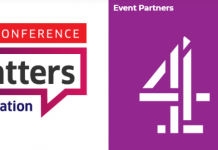There continues to be discussion, programmes and training about equality, diversity and inclusion. Without appropriate awareness of these matters and how to deliver solutions to issues some organisations will be at a disadvantage. In 2018 the CIPD said that People management practices must recognise that being inclusive goes beyond policy and ensures that everyone is valued and supported as an individual.
It is always beneficial to revisit why organisations concern themselves with these matters. Is that they are compelled to, for business reasons, do they have ethical drivers or is just a good thing to do?
Complying with legislation
There is a raft of legislation that covers equality that provides frameworks in which organisations operate. This does not force behavioural patterns on organisations but it does define the parameters that provide accountability when things go wrong. Organisations need to be aware of their responsibilities and consequences if things go wrong.
Ethical reasons
Most organisations readily accept the ethical and moral arguments for building equality into the workplace based on social justice. However just acknowledging it’s the right thing isn’t enough if nothing changes or it does not bring benefits to employees and the organisation.
Impact on markets
We live and work in a global economy the opportunities and benefits of exploring new markets and customers are ever present. A diverse workforce, collaborations or partnering with other diverse organisations can open up opportunities for insights into approaches and take advantage of difference. An organisation that embraces and utilises diversity is better placed to take advantage of existing markets that are increasingly diverse and potential new markets.
Increasing productivity, encouraging innovation and creativity
A study by the Boston Consulting Group in 2018 found that diversity increases the bottom line for companies. The study found that “increasing the diversity of leadership teams leads to more and better innovation and improved financial performance.” Back in 2013 Deloittes found that employees’ ability to innovate increased by an impressive 83% when they felt their employer was committed to workplace diversity.
Brand image and Public Relations
Increasingly consumers are aware especially through social media of what organisations are doing or more importantly not doing with regard to equality, diversity and inclusion. One bad story or incident such as unfair discrimination or social stereotyping (Starbucks) can ruin the goodwill of customers and consumers. This may not impact adversely on the bottom line in the longer term but it can have impacts on other areas such as recruitment.
Attracting the best talent
Traditional talent pools of potential recruits continue to be drained by organisations that focus on a particular candidate profile or are not attractive to a diverse candidate pool. Attraction of diverse candidates needs to have a holistic approach from advertising through selection to organisational image to demonstrate that fairness, inclusion and transparency are real.
In conclusion
Positively, more and more organisations are recognising that people bring intrinsic value to business and should stand to gain value themselves. This shift means that businesses must recognise that employees are legitimate stakeholders of an organisation alongside shareholders and customers (CIPD 2018).
If your business is looking to improve its diversity or effectively train staff on equality, diversity, inclusion or unconscious bias, Marshall E-learning have a wide range of effective e-learning programmes that can add value to your organisation.
Get in touch today to find out how we can support you and your employees. Contact David Marshall at dmarshall@marshallacm.co.uk, call +44 (0)845 123 3909 or visit the Marshall E-Learning website here.









